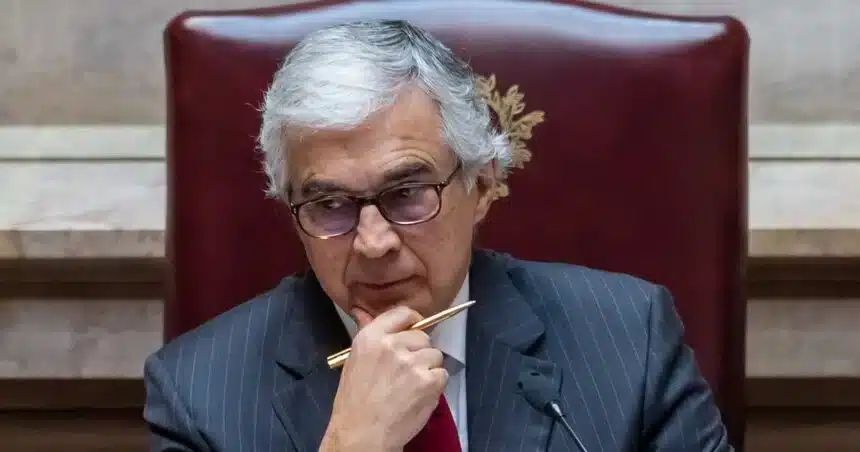Speaker’s view contested by left-wingers; applauded by CHEGA
Portugal’s media focus on ‘racism and xenophobia’ continues today with Lusa reporting that “the President of the Assembly of the Republic refuses to be a censor and limit MPs’ freedom of expression“.
Other news sources turn this interpretation around, and headline the news as speaker José Pedro Aguiar-Branco “defending that MPs ‘can’ make racist and xenophobic comments in parliament”.
Where is this all coming from? Lusa explains: this latest incident follows a comment, made by the leader of CHEGA André Ventura, in the debate led by Infrastructure minister Miguel Pinto Luz.
In questioning the 10 years estimated for the construction of the new airport, Ventura said: “We can be a lot better than the Turks, the Chinese, the Albanians, we can have an airport in five years. Istanbul airport was built and operationalised in five years. The Turks aren’t exactly known for being the hardest working people in the world…”, it was at this point that he was cut short by protests “from several benches”.
In response to Ventura’s request to the speaker to be able to continue, Aguiar-Branco agreed that “the MP has the freedom of expression to express himself”.
It has to be said this is a very different attitude to that shown by the previous speaker (PS Socialist Augusto Santos Silva), who was well-known for his acerbic put-downs of Ventura (whose ‘popularity’ appears to have suffered no ill-effects as a result: CHEGA more than quadrupled its number of MPs at the last elections, in March).
But, this new approach did not delight left-wingers: Bloco de Esquerda’s parliamentary leader Fabian Figueiredo, took the floor to argue that “attributing characteristics and stereotypes to a people should have no place in the democratic debate of the Assembly of the Republic”.
Figueiredo went so far as to apologise to the Turkish ambassador (who was not even present).
In response, Aguiar-Branco perpetuated his view of the matter.
“I do not agree, because democratic debate is everyone being able to express themselves exactly how they want to. In the opinion of the President of the Assembly, work is being conducted while ensuring the free expression of all the deputies. It has nothing to do with what I personally think. I will not be the censor of any of the MPs”, he said.
Socialist parliamentary leader Alexandra Leitão questioned if this meant that it is fine for MPs to brand “a particular race or ethnic group” as “dumber or lazier” than others.
Yes, in Aguiar-Branco’s opinion, it is. “Freedom of expression is constitutionally enshrined. The assessment of political discourse made here in this House will be made by the people in elections”, he said, adding that “if there is anyone who thinks that the intervention of deputies should be censored, they should appeal against the decision of the president of the Assembly of the Republic. And then the plenary will do the censoring, not me”.
LIVRE’s parliamentary leader Isabel Mendes Lopes was clearly not content with this answer. She took to the floor to say “racism is a crime”. What is said in parliament “has a direct impact on people’s lives”.
Nipping rising emotions, Aguiar-Branco said: “I am not going to continue on this subject. The Assembly has numerous legal mechanisms to express its opinion. One thing you can be sure of, I will never be the one to curtail freedom of expression” – to which the 50 MPs of CHEGA rose to their feet to deliver a standing ovation.
Considering the really serious discourse of the Chief of Staff of the Navy only days ago, this was another of those parliamentary scenes which show a country’s political representatives focused on minutiae.
Earlier, Ventura had pointed out the incongruity of having the ‘National Day against Homophobia’ (today) marked by ‘illuminating the front of parliament’, while nothing comparable happens to commemorate ‘national hypertension day’ or ‘national day of combattents/ nurses or even the Armed Forces”.
Parliament, ventured Ventura, has become “hostage to woke language“.
Source material: LUSA




















